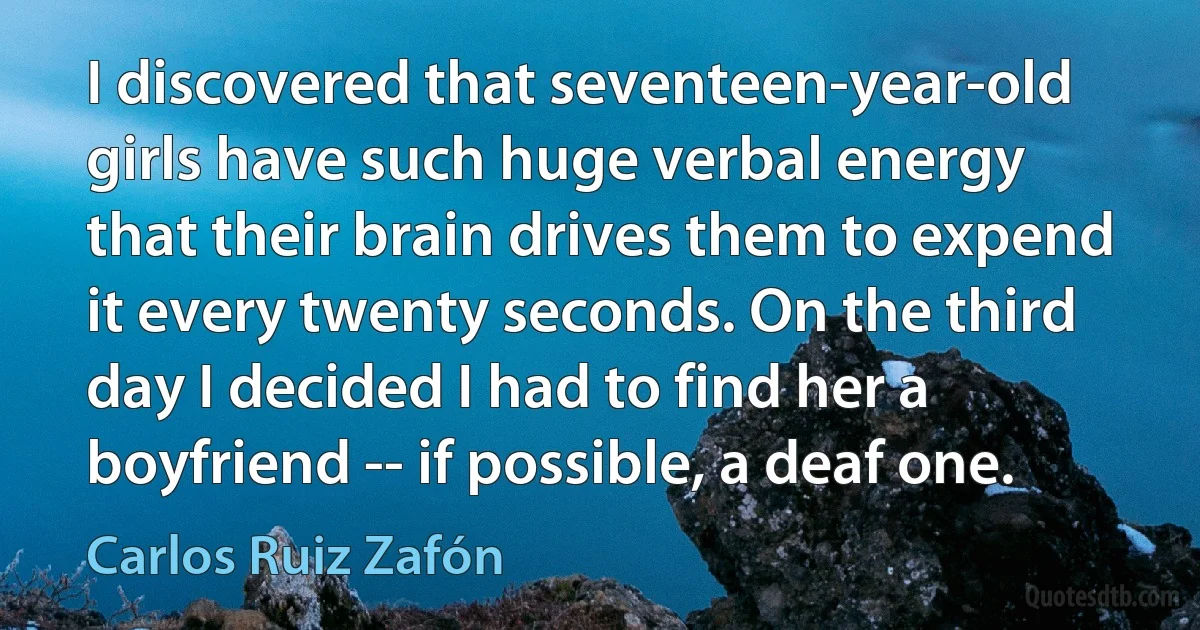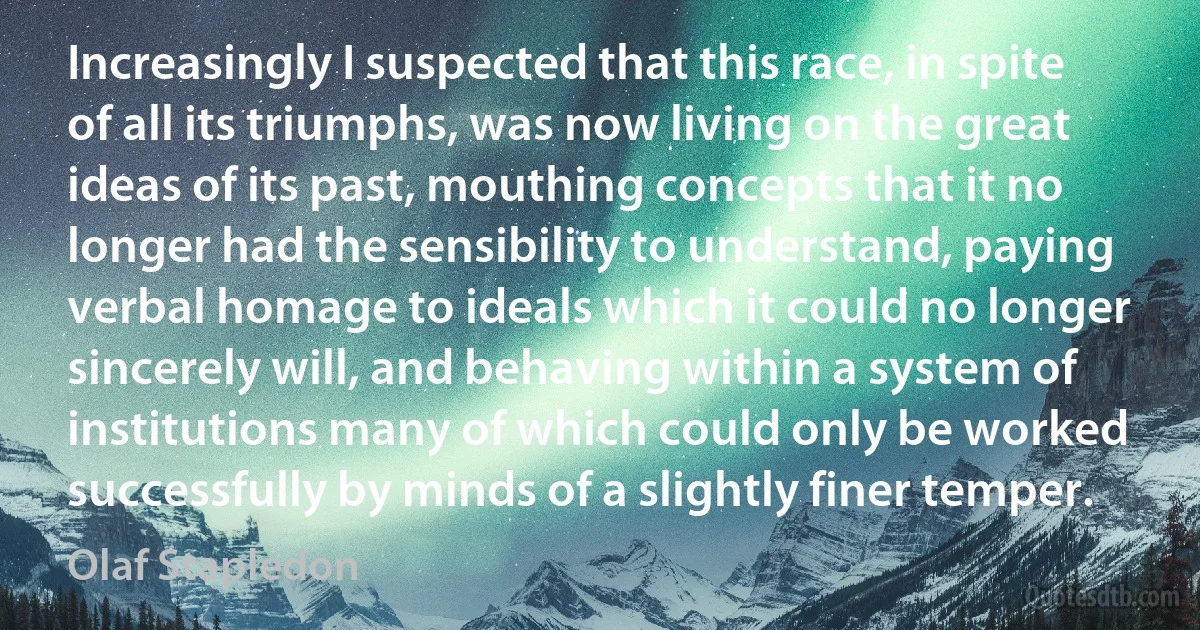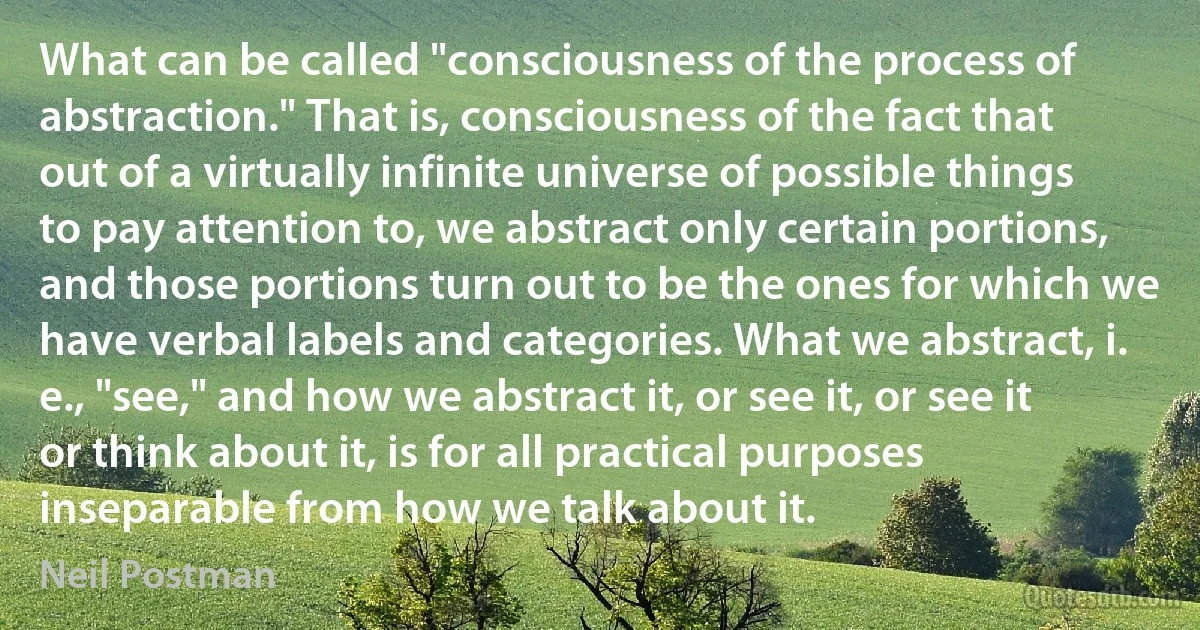Verbal Quotes - page 4
David Galin, among other researchers, has pointed out that teachers have three main tasks: first, to train both hemispheres - not only the verbal, symbolic, logical left hemisphere, which has always been trained in the traditional education, but also the relational, holistic right hemisphere, which is largely neglected in today's schools; second, to train students to use the cognitive style suited to the tasks at hand; and third, to train students to be able to bring both styles - both hemispheres - to bear on a problem in an integrated manner.
When teachers can pair the complementary modes or fit one mode to the appropriate task, teaching and learning will become a much more precise process. Ultimately, the goal will be to develop both halves of the brain. Both modes are necessary for full human functioning and both are necessary for creative work of all kinds, whether writing or painting, developing a new theory in physics, or dealing with environmental problems.

Betty Edwards
One of the basic tenets of Zen Buddhism is that there is no way to characterize what Zen is. No matter what verbal space you try to enclose Zen in, it resists, and spills over. It might seem, then, that all efforts to explain Zen are complete wastes of time. But that is not the attitude of Zen masters and students. For instance, Zen koans are a central part of Zen study, verbal though they are. Koans are supposed to be "triggers" which, though they do not contain enough information in themselves to impart enlightenment, may possibly be sufficient to unlock the mechanisms inside one's mind that lead to enlightenment. But in general, the Zen attitude is that words and truth are incompatible, or at least that no words can capture truth.

Douglas Hofstadter
The only link between the verbal and objective world is exclusively structural, necessitating the conclusion that the only content of all "knowledge" is structural. Now structure can be considered as a complex of relations, and ultimately as multi-dimensional order. From this point of view, all language can be considered as names for unspeakable entities on the objective level, be it things or feelings, or as names of relations. In fact we find that an object represents an abstraction of a low order produced by our nervous system as the result of a sub-microscopic events acting as stimuli upon the nervous system.

Alfred Korzybski
There is a fundamental confusion between the notion of the older 'semantics' as connected with a theory of verbal 'meaning' and words defined by words, and the present theory of 'general semantics' where we deal only with neuro-semantic and neuro-linguistic living reactions of Smith, Smith, etc., as their reactions to neuro-semantic and neuro-linguistic environments as environments.

Alfred Korzybski
One need not swallow such absurdities as this, but one ought to recognise that the present political chaos is connected with the decay of language, and that one can probably bring about some improvement by starting at the verbal end. If you simplify your English, you are freed from the worst follies of orthodoxy.

George Orwell
There is an age old prejudice the world over to effect that women talk too much. But is this really a weakness? Could it not in fact be a strength? Recent scientific research on the human brain has revealed that women are better at verbal skills while men tend towards physical action. Psychological research has shown on the other hand that disinformation engendered by men has a far more damaging effect on its victims than feminine gossip. Surely these discoveries indicate that women have a most valuable contribution to make in situations of conflict, by leading the way to solutions based on dialogue rather than on viciousness or violence?

Aung San Suu Kyi
Out of the meaningless practical shapes of all that is living or lifeless
Joined with the artist's eye, new life, new form, new colour.
Out of the sea of sound the life of music,
Out of the slimy mud of words, out of the sleet and hail of verbal imprecisions,
Approximate thoughts and feelings, words that have taken the place of thoughts and feelings,
There spring the perfect order of speech, and the beauty of incantation.

T. S. Eliot
We have an odd relationship with words. We learn a few when we are small, throughout our lives we collect others through education, conversation, our contact with books, and yet, in comparison, there are only a tiny number about whose meaning, sense, and denotation we would have absolutely no doubts if, one day, we were to ask ourselves seriously what they meant. Thus we affirm and deny, thus we convince and are convinced, thus we argue, deduce, and conclude, wandering fearlessly over the surface of concepts about which we have only the vaguest of ideas, and, despite the false air of confidence that we generally affect as we feel our way along the road in the verbal darkness, we manage, more or less, to understand each other and even, sometimes, to find each other.

José Saramago
Since dreams are influenced by the predominant activities and mental preoccupations of the waking state, in order to attract higher beings you must engage in consciously higher activities. If we spend our days speaking verbal garbage and engaging in activities that do harm to ourselves and other living entities, why would any being of a higher vibration want to associate with us in our dreams or other- wise? Thus, if we raise the vibrations of our surroundings by meditating and acting according to a higher standard, utilizing prayer and focusing on helping others, we will be guided by those whose role it is to assist souls in their spiritual development.

Bhakti Tirtha Swami
Chrétien is nothing if not versatile: popular, recherché, allusive, insistent, arch, naïve, racy and demure...He has a dramatist's flair for the handling of dialogue, a deft and economic way with characterization, the sharp confidence of the logician in his handling of rhetorical figures and the self-assurance of the entertainer in the deployment of humour (he is master of the verbal nudge). It is his essential vivacity that one misses most in his imitators.

Chrétien de Troyes
Matisse's art speaks for itself through its "mechanics", it's "form" and through the feeling which that "form" makes manifest. It's not by far the first to do so and to transcend the illustrated subject by doing so. (All good painting and sculpture does that to some extent). But just as Matisse rejected verbal rhetoric so he kept every last trace of illustrational rhetoric out of his art. He may have been the first painter in our tradition to do that in a really radical way. This doesn't make his art better than a Giotto's or Caravaggio's or Goya's or David's, not necessarily. But it does make it a salutary example for all those people who find it hard, in any medium, to mean what they say.

Clement Greenberg
Readers of histories and novels can hardly fail to be struck by their similarities. There are many histories that could pass for novels, and many novels that could pass for histories, considered in purely formal (or, I should say, formalist) terms. Viewed simply as verbal artifacts histories and novels are indistinguishable from one another. We cannot easily distinguish between them on formal grounds unless we approach them with specific preconceptions about the kinds of truths that each is supposed to deal in. But the aim of the writer of a novel must be the same as that of the writer of a history.

Hayden White
Critics of visual arts and of music describe in words - that is to say, a system of signs other than those made by brushes on canvas or chisels into stone or notes of music - those characteristics of painting or sculpture or music which can be described or analysed. Visual artists and composers can disregard critics on the ground that the medium of verbal criticism bears so indirect a relation to the medium in which they make something. Poets are in a different situation. With the development of so-called scientific methods of criticism they are made ever conscious that criticism of poetry is in the same medium of work as the art which they practise. "Close analysis” is useful to critics and readers. But for the poet there is the danger of disintegration of poetry into paraphrase, examination of technique, influences, all analysed in the language of criticism.

Stephen Spender



